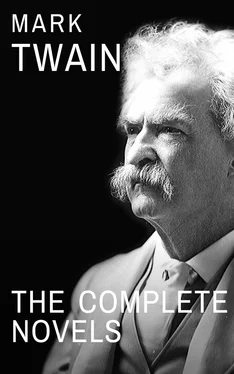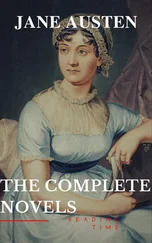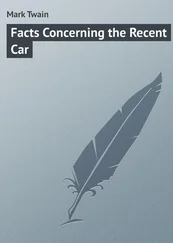Miles Hendon and Tom Canty were favourites of the King, all through his brief reign, and his sincere mourners when he died. The good Earl of Kent had too much sense to abuse his peculiar privilege; but he exercised it twice after the instance we have seen of it before he was called from this world—once at the accession of Queen Mary, and once at the accession of Queen Elizabeth. A descendant of his exercised it at the accession of James I. Before this one's son chose to use the privilege, near a quarter of a century had elapsed, and the 'privilege of the Kents' had faded out of most people's memories; so, when the Kent of that day appeared before Charles I. and his court and sat down in the sovereign's presence to assert and perpetuate the right of his house, there was a fine stir indeed! But the matter was soon explained, and the right confirmed. The last Earl of the line fell in the wars of the Commonwealth fighting for the King, and the odd privilege ended with him.
Tom Canty lived to be a very old man, a handsome, white-haired old fellow, of grave and benignant aspect. As long as he lasted he was honoured; and he was also reverenced, for his striking and peculiar costume kept the people reminded that 'in his time he had been royal;' so, wherever he appeared the crowd fell apart, making way for him, and whispering, one to another, "Doff thy hat, it is the King's Ward!"—and so they saluted, and got his kindly smile in return—and they valued it, too, for his was an honourable history.
Yes, King Edward VI. lived only a few years, poor boy, but he lived them worthily. More than once, when some great dignitary, some gilded vassal of the crown, made argument against his leniency, and urged that some law which he was bent upon amending was gentle enough for its purpose, and wrought no suffering or oppression which any one need mightily mind, the young King turned the mournful eloquence of his great compassionate eyes upon him and answered—
"What dost THOU know of suffering and oppression? I and my people know, but not thou."
The reign of Edward VI. was a singularly merciful one for those harsh times. Now that we are taking leave of him, let us try to keep this in our minds, to his credit.
General note
One hears much about the 'hideous Blue Laws of Connecticut,' and is accustomed to shudder piously when they are mentioned. There are people in America—and even in England!—who imagine that they were a very monument of malignity, pitilessness, and inhumanity; whereas in reality they were about the first SWEEPING DEPARTURE FROM JUDICIAL ATROCITY which the 'civilised' world had seen. This humane and kindly Blue Law Code, of two hundred and forty years ago, stands all by itself, with ages of bloody law on the further side of it, and a century and three-quarters of bloody English law on THIS side of it.
There has never been a time—under the Blue Laws or any other—when above FOURTEEN crimes were punishable by death in Connecticut. But in England, within the memory of men who are still hale in body and mind, TWO HUNDRED AND TWENTY-THREE crimes were punishable by death! These facts are worth knowing—and worth thinking about, too.
[1] It is most reasonable to regard the dress as copied from the costume of the citizens of London of that period, when long blue coats were the common habit of apprentices and serving-men, and yellow stockings were generally worn; the coat fits closely to the body, but has loose sleeves, and beneath is worn a sleeveless yellow under-coat; around the waist is a red leathern girdle; a clerical band around the neck, and a small flat black cap, about the size of a saucer, completes the costume.—Timbs' Curiosities of London.
[2] It appears that Christ's Hospital was not originally founded as a SCHOOL; its object was to rescue children from the streets, to shelter, feed, clothe them.—Timbs' Curiosities of London.
[3] The King was now approaching fast towards his end; and fearing lest Norfolk should escape him, he sent a message to the Commons, by which he desired them to hasten the Bill, on pretence that Norfolk enjoyed the dignity of Earl Marshal, and it was necessary to appoint another, who might officiate at the ensuing ceremony of installing his son Prince of Wales.—Hume's History of England, vol. iii. p. 307.
[4] It was not till the end of this reign (Henry VIII.) that any salads, carrots, turnips, or other edible roots were produced in England. The little of these vegetables that was used was formerly imported from Holland and Flanders. Queen Catherine, when she wanted a salad, was obliged to despatch a messenger thither on purpose.—Hume's History of England, vol. iii. p. 314.
[5] James I. and Charles II. had whipping-boys, when they were little fellows, to take their punishment for them when they fell short in their lessons; so I have ventured to furnish my small prince with one, for my own purposes.
3. The Adventures of Huckleberry Finn
Notice
Chapter 1
Chapter 2
Chapter 3
Chapter 4
Chapter 5
Chapter 6
Chapter 7
Chapter 8
Chapter 9
Chapter 10
Chapter 11
Chapter 12
Chapter 13
Chapter 14
Chapter 15
Chapter 16
Chapter 17
Chapter 18
Chapter 19
Chapter 20
Chapter 21
Chapter 22
Chapter 23
Chapter 24
Chapter 25
Chapter 26
Chapter 27
Chapter 28
Chapter 29
Chapter 30
Chapter 31
Chapter 32
Chapter 33
Chapter 34
Chapter 35
Chapter 36
Chapter 37
Chapter 38
Chapter 39
Chapter 40
Chapter 41
Chapter 42
Chapter 43
PERSONS attempting to find a motive in this narrative will be prosecuted; persons attempting to find a moral in it will be banished; persons attempting to find a plot in it will be shot.
BY ORDER OF THE AUTHOR, Per G.G., Chief of Ordnance.
EXPLANATORY IN this book a number of dialects are used, to wit: the Missouri negro dialect; the extremest form of the backwoods Southwestern dialect; the ordinary “Pike County” dialect; and four modified varieties of this last. The shadings have not been done in a hap-hazard fashion, or by guesswork; but painstakingly, and with the trustworthy guidance and support of personal familiarity with these several forms of speech. I make this explanation for the reason that without it many readers would suppose that all these characters were trying to talk alike and not succeeding.
THE AUTHOR.
Конец ознакомительного фрагмента.
Текст предоставлен ООО «ЛитРес».
Прочитайте эту книгу целиком, купив полную легальную версию на ЛитРес.
Безопасно оплатить книгу можно банковской картой Visa, MasterCard, Maestro, со счета мобильного телефона, с платежного терминала, в салоне МТС или Связной, через PayPal, WebMoney, Яндекс.Деньги, QIWI Кошелек, бонусными картами или другим удобным Вам способом.










